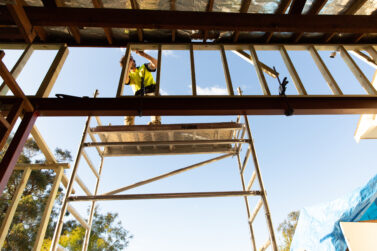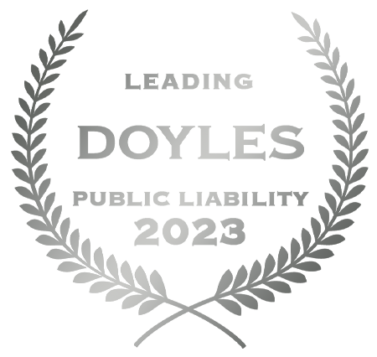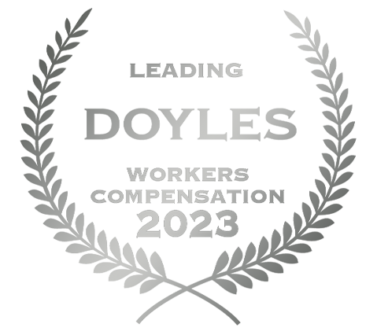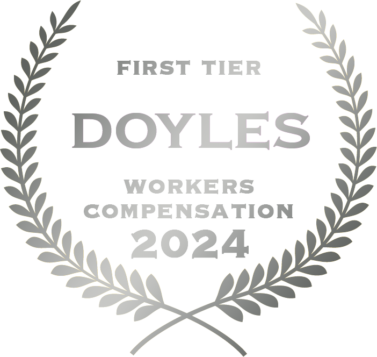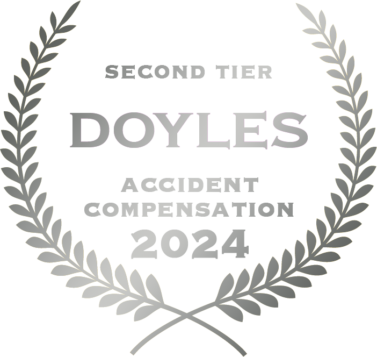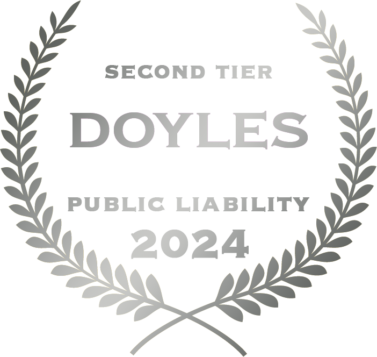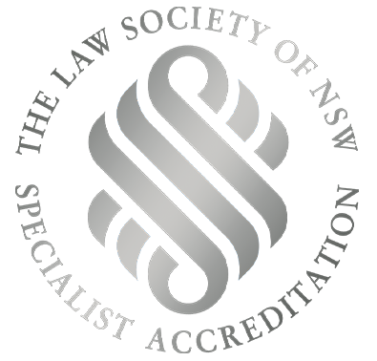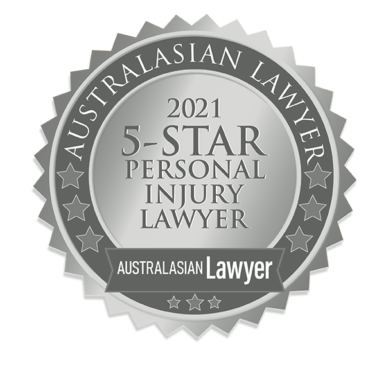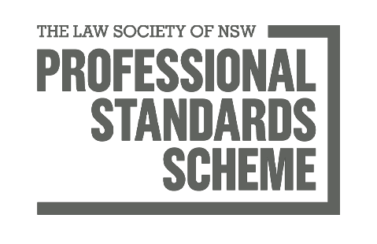
Industrial Deafness and Hearing Loss Workers Compensation Guide.

Hearing loss caused by exposure to noise is all too common in Australia among people who work with machinery, heavy equipment, and power tools in industries like construction, manufacturing, and mining. In 2018-2019, noise-induced hearing loss accounted for around 34%* of all compensated occupational diseases in Australia.
If you’ve suffered industrial deafness or hearing loss, workers compensation provides a safety net to cover your medical costs. But a lot of Australian workers don’t report their hearing loss* or claim all the compensation they’re entitled to and claims for lump sum payouts are often denied.
This guide provides information and inside tips from some of Australia’s top workers compensation lawyers on how to make sure you get all the compensation you’re entitled to, including any lump sum payouts you qualify for.
* According to Safe Work Australia.
Quick links:
- Industrial deafness claim time limit
- Does my hearing loss qualify for workers compensation?
- How much compensation do you get for industrial deafness?
Claiming industrial deafness workers compensation – what you need to know.
The first step is to report your hearing loss to your employer as soon as you can. But if you’ve already reported it, here’s a tip from our lawyers:
‘Many people who make an industrial deafness claim simply accept the compensation they’re offered by the workers comp insurer. But there are situations where you might be entitled to a lot more compensation, including lump sums, that you haven’t been told about. For example, if your employer failed to provide you with hearing protection and promote its usage, they may be found negligent, and you may be entitled to a common law damages lump sum. These lump sums can be substantial.’
Has your hearing loss claim been denied?
We also have a lot of clients coming to us because they’ve had part of their claim, like specific treatment or surgery denied by the insurer. If that’s happened to you, don’t assume that’s the end of the matter – we regularly dispute insurers’ decisions and get them overturned for our clients.
What’s the industrial deafness claim time limit?
In most cases, you have up to three years from the date of your diagnosis to make a claim for industrial deafness. However, this three-year period begins from the date you first became aware that your hearing loss is work-related, and you may have started developing symptoms of hearing loss earlier.
Industrial deafness generally develops gradually over time, so it can be hard to pinpoint when the three-year industrial deafness claim time limit begins and ends. If you’d like free legal advice on whether you can claim, call 13 15 15 to speak to a specialist workers compensation lawyer.
Call 13 15 15 or chat to us now for free advice
Chat nowFind out how much you can claim.
Get startedWorkers compensation claims – hearing loss compensation payouts.
Industrial deafness or hearing loss claims and settlements can be substantial. If you make a claim for workers compensation in NSW, the following table outlines what you may be eligible to receive:
| Workers Compensation Payments NSW | Description |
| Weekly payments | These are payments to compensate you for lost income if you need time off work due to your hearing loss. |
| Medical expenses | This can include claims for hearing aids, cochlear implants, or surgery. It can also include travel expenses. |
| Permanent Impairment payout | A lump sum compensation claim to cover a permanent impairment as a result of hearing loss. |
| Work Injury Damages payout | Also known as a common law claim, this is a lump sum payout for damages if your hearing loss was caused by your employer’s negligence. |
Permanent impairment and work injury damages lump sums for hearing loss are not paid to you automatically; you need to claim them separately, even if you’re already receiving weekly benefits or medical expenses.
Does my hearing loss qualify for a workers compensation settlement/payout?
Industrial hearing loss happens gradually over time, so the first step is to be aware of any changes in your hearing that may lead to qualifying for a compensation claim. If you’re suffering any of these symptoms, the next step is to get a medical assessment to confirm your level of hearing loss and whether it was caused by your job.
Here are some indicators to look out for:
| Symptom | Description |
| Difficulty hearing | You find it hard to understand conversations, particularly in noisy environments or when multiple people are speaking. |
| Ringing or buzzing in the ears | You experience persistent ringing, buzzing, hissing, or other noises in the ears, known as tinnitus. |
| Sensitivity to loud sounds | You become more sensitive or irritated by loud noises or find yourself frequently adjusting the volume on electronic devices. |
| Muffled or distorted sounds | You may notice that sounds seem muffled or less clear, making it difficult to understand speech or hear certain frequencies. |
| Difficulty following instructions | You struggle to understand and remember instructions or frequently misinterpret what others are saying. |
| Social withdrawal or communication difficulties | Hearing loss can make it challenging to participate in conversations, leading to feelings of isolation or frustration. |
If you’re not sure if you qualify, you can call 13 15 15 and get free legal advice over the phone.
How much compensation do you get for industrial deafness?
The amount you can claim will depend on your level of permanent impairment, and whether your employer’s negligence contributed to your hearing loss. Here’s a summary you may be able to claim:
| Level of impairment | Compensation entitlement |
| Less than 11% permanent impairment | Time off work, travel, cochlear implants, surgery |
| 11% permanent impairment* | An additional lump sum for permanent impairment |
| 15% permanent impairment + employer negligence | An additional lump sum for work injury damages |
*Police and emergency services workers only need 6% binaural (including both ears) hearing loss caused by industrial deafness to get 1% WPI and qualify for a permanent impairment lump sum.
Industrial deafness claim payout example.
Here’s an example of an industrial deafness claim payout for a client who had his permanent impairment assessed at 20%, and his employer was found to have been negligent by not providing appropriate hearing protection:
| Payment | Amount |
| Payment for hearing assessments, hearing aids | $4,800 |
| Permanent impairment lump sum | $56,320 |
| Work injury damages lump sum | $62,300 |
| Total compensation payout | $123,420 |
Call 13 15 15 or chat to us now for free advice
Chat nowFind out how much you can claim.
Get startedCan I claim a lump sum for my industrial deafness or hearing loss?
Yes, if you have at least 20.5% binaural (including both ears) hearing loss, you may qualify for a lump sum payment for permanent impairment. A binaural hearing loss of 20.5% equates to approximately 11% permanent impairment, which is the minimum requirement for most workers to claim a permanent impairment lump sum. Police and emergency service workers just need 6% binaural hearing loss caused by industrial deafness to get 1% WPI and qualify for a permanent impairment lump sum.
You may also qualify for a lump sum payment for work injury damages if your employer was negligent in some way – for example, if you worked in a factory where there was consistent loud noise from machinery and your employer didn’t offer hearing protection.
Common questions and answers on industrial deafness workers compensation.
The first step is to ask your GP for a referral to an ear, nose and throat specialist (ENT) for a hearing assessment.
The ENT will conduct a hearing assessment and provide a report detailing:
- Your level of binaural hearing loss
- The proportion of your hearing loss caused by workplace noise
- Recommended treatment – for example, if you would benefit from a hearing aid
To claim lump sum compensation for work-related hearing loss, your assessment must be conducted by an ENT specialist who is a trained assessor of permanent impairment.
If you think you might qualify for lump sum compensation, you can call 13 15 15 and we’ll guide you through the process so that you don’t miss out on entitlements.
In most cases, you have up to three years from the date of your diagnosis to make a claim for industrial deafness. However, this three-year period begins from the date you first became aware that your hearing loss is work-related, and you may have started developing symptoms of hearing loss earlier.
Industrial deafness compensation claims typically take up to 18 months, but this can vary depending on your circumstances.
Permanent hearing loss refers to impairment or loss of hearing that can’t be fully restored or resolved through medical intervention. It means the hearing damage is irreversible and is likely to persist over an extended period, or indefinitely.
What do I do next?
If you have any questions about industrial deafness or hearing loss workers compensation, we’re here to help – you can call 13 15 15 and get free advice from one of our specialist workers compensation lawyers. And if you decide you need help with your claim, we can take care of the whole process for you. We work on a no win no fee basis and win over 99% of our cases.

Chantille Khoury
Principal
A Doyle’s Guide listed personal injury law professional and one of the country’s preeminent workers compensation specialists, with over 15 years’ experience in delivering optimal outcomes to injured Australians.
Related articles.
Do I have a case?
Our senior lawyers will assess your case for free.

